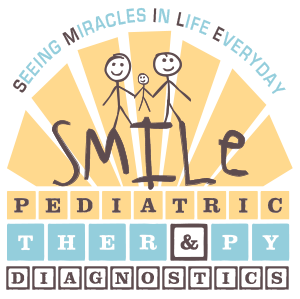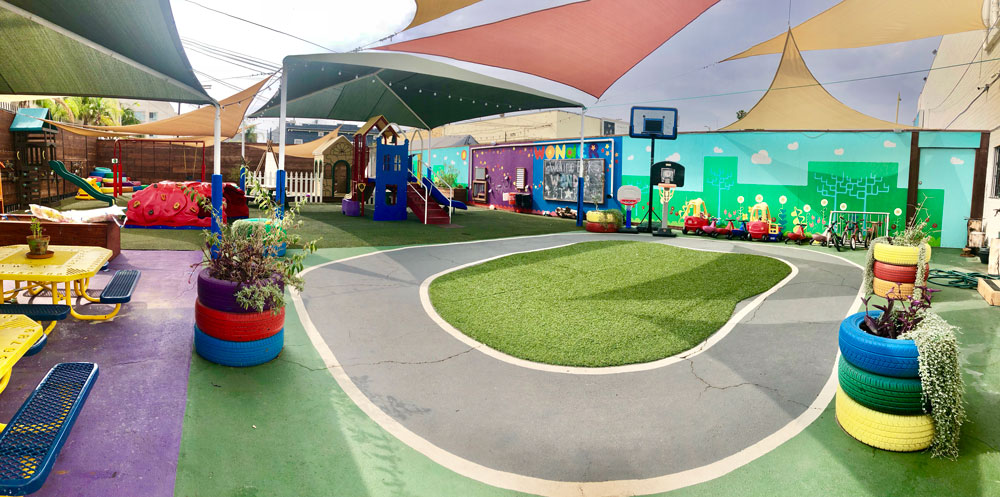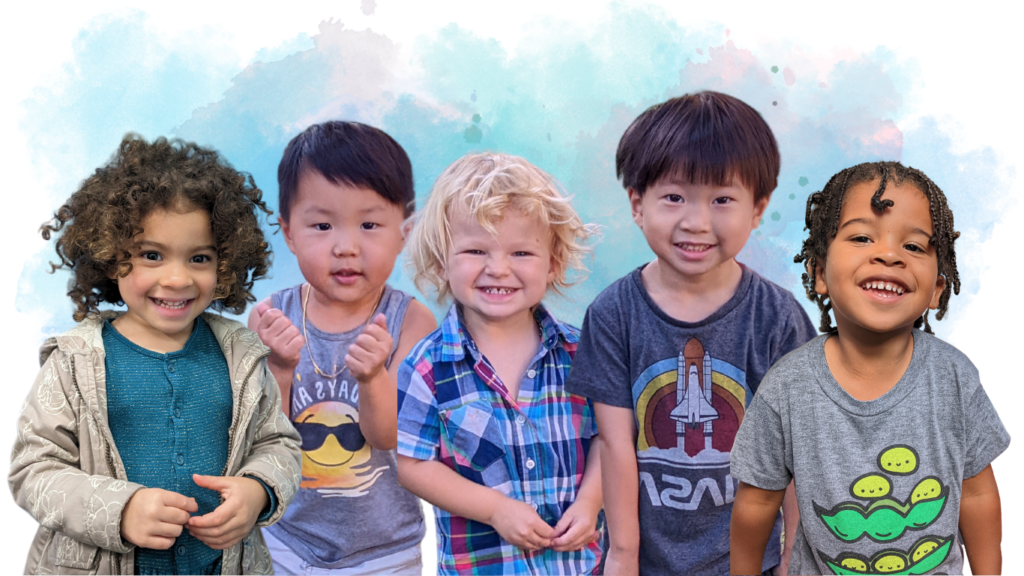
About Us

Smile Pediatric Therapy & Diagnostics (Smile) is a play-based, pediatric assessment and treatment center providing Applied Behavioral Analysis, the Early Start Denver Model, Speech-Language Therapy, Physical Therapy, Occupational Therapy, Sensory Integration, Feeding Therapy, and Social Skills programs for incredible children from birth through adolescence.
Mission & Core Values: At Smile, we invite you to join our family where we aim to create hope and build healthier futures via innovative assessment and treatment services. We maximize learning potentials through quality care so that each child and their family can live the most fulfilling life possible. Smile’s mission is fulfilled by our core values of care, innovation, integrity, fun, education, and community. With an expert staff of multi-disciplinary therapists, therapy at Smile is a joyful and adventurous experience for kids, parents, and staff. “Seeing Miracles In Life Everyday” is not just a motto we aspire to, it’s a remarkable and tangible occurrence we’ve had first-hand alongside our families.
Safety Pledge: Smile now offers a variety of safe, fun, and exciting in-person, virtual, or hybrid year-round treatment opportunities. Call us today to learn more 323.644.9380. We look forward to growing together!
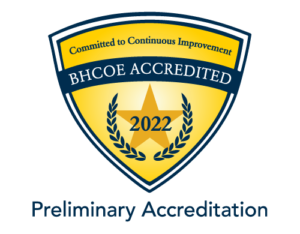
BHCOE Accreditation recognizes behavioral health organizations that excel in clinical quality, staff qualifications, and consumer satisfaction and promote systems that enhance these areas. Smile joins BHCOE’s community of top performing ABA service organizations demonstrating our commitment to quality. Smile earned Preliminary Accreditation, reinforcing our commitment to the patients and families we serve. The accreditation program is a trusted source that ensures ABA services are delivered ethically, sustainably, and in a client-focused manner. Accreditation also demonstrates a commitment to high-quality services and the differentiation to promote confidence within the community. We’re excited to announce that we have earned this recognition!
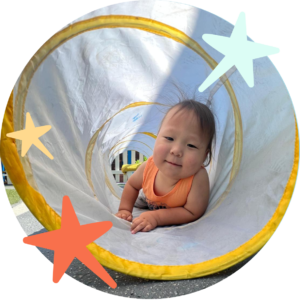

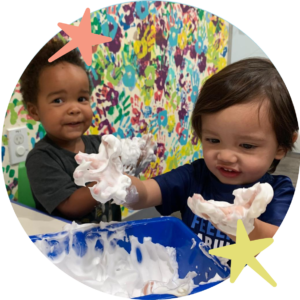
Naturalistic Developmental Intervention Programs

Applied Behavior Analysis (ABA) Therapy
What is ABA Therapy at Smile?
Applied Behavior Analysis (ABA) is an evidence-based, distinguished treatment program for children who either have Autism Spectrum or show markers for Autism. ABA treatment focuses primarily on basic principles of behavior, with a primary goal of increasing desired behaviors and decreasing undesired behaviors. The ABA program at Smile supports a child’s skill development and behavior across all areas of learning. Emphasis is applied to behaviors encompassing social, communication, adaptive, and behavioral needs across child age and ability levels. With elements of Discrete Trail Training and Naturalistic Environment Training, the ABA program at Smile fosters child development via a semi-structured to structured approach. Opportunities to learn through play are also routinely embedded in the program. Parental involvement and training are focal points of the treatment and children receiving ABA benefit from the programs systematic approach to positively shaping socially significant behaviors.
Who is eligible for ABA?
Children and adolescents between the ages of 2 years to 18 years of age who either have Autism Spectrum or show makers of Autism are eligible to receive ABA services.
Markers of autism include but are not limited to difficulty with social interactions, including poor eye contact, inability to engage in reciprocal and sustained social interactions with others (including peers), a preference for solitary or parallel play, repetitive behaviors, and/or difficulty organizing behaviors in a variety of settings.
How many hours of ABA therapy are provided per week?
Therapy is provided at a minimum of 10-hours per week and up to 40-hours per week. In the event that a child is unable to participate in the program at a minimum of 10 hours a week, exceptions can be made based on the scheduling needs of the child and family.
Where is ABA treatment provided?
Therapy services may be provided at our center-based location, in the home, and/or within community settings based on scheduling availability.
Who funds ABA?
ABA therapy is currently funded via applicable private insurance companies or private clients. The program is also undergoing evaluation for funding by the Frank D. Lanterman Regional Center (FDLRC).
How do I know if ABA therapy is the right match for my child?
Smile’s ABA program is appropriate for children between 2-years and 18-years old. Through utilizing a child-centered, naturalistic approach to ABA, the overarching goal of the ABA program is to help children develop positive behaviors and responses, teach skills across developmental areas, and emphasize awareness of self and others. Naturalistic and social learning principles are embedded into structured, semi-structured, and unstructured activities to harness child interest and motivation. Via deep analysis and through understanding what factors impact child behavior, ABA is a highly individualized program that facilitates children’s ability to learn a wide range of skills, including in regard to: functional communication, socialization, self-help skills, academic/pre-academic skills, motor development, and parent training. Additionally, regulation, executive function, social-emotional learning and play skills are also supported through fun, therapeutic tasks.
Can my child receive other therapies while enrolled in ABA?
Because ABA follows an interdisciplinary learning model, it can be used in tandem with other supportive services such as speech therapy, occupational therapy, physical therapy, or preschool enrollment for example. ABA can also serve as a stand alone service model. While compatible and complimentary, the ABA program is not recommended for children who are currently enrolled in other intensive programs such as the Early Start Denver Model due to the increased frequency of service that each supportive model requires.
How do I get ABA services started?
If your child is between 2 years to 18 years of age and meets the eligibility criteria, please contact us so that a member of our supportive administrative team can assist you in learning more.

Early Start Denver Model (ESDM)
What is ESDM
The Early Start Denver Model (ESDM) is an evidence-based comprehensive therapeutic treatment approach for children between 12 to 60 months of age with Autism Spectrum or who show markers of Autism. The ESDM focuses primarily on social interaction skills, in addition to receptive and expressive language, motor development, imitation, cognition, play skills, and personal independence. Time Magazine has listed ESDM as a Top Ten Health Breakthrough, positively contributing to brain development and function. Parental involvement and training are focal points of treatment. Because the ESDM is a child-led approach that stems from a developmental, holistic lens, the primary goal of the program is to encourage social learning during natural, everyday, and fun activities across settings, environments, and people!
Who is eligible for ESDM?
The ESDM can begin as early as 12 months up to 60 months of age for children who either have Autism Spectrum or show makers of Autism.
Markers of autism include but are not limited to difficulty with social interactions, including poor eye contact, inability to engage in reciprocal and sustained social interactions with others (including peers), a preference for solitary or parallel play, repetitive behaviors, and/or difficulty organizing behaviors in a variety of settings.
How many hours of ESDM therapy are provided per week?
Therapy is provided at a minimum of 15-hours per week and up to 30-hours per week. In the event that a child is unable to participate in the program at a minimum of 15 hours a week, exceptions can be made based on the scheduling needs of the child and family.
Where is the ESDM treatment provided?
Therapy services may be provided at our center-based location, in the home, community, preschool, and daycare settings based on scheduling availability.
Who funds ESDM?
ESDM therapy is currently funded by the Frank D. Lanterman Regional Center (FDLRC), the Eastern Los Angeles Regional Center (ELARC), and the Westside Regional Center (WRC) for eligible children between the ages of 12 months to 4 years, 11 months of age. At this time, Smile is not a provider of the ESDM through private insurance but does offer the service to private consumers.
How do I know if ESDM therapy is the right match for my child?
The ESDM is an approach that is both child-centered and behavioral, and would be beneficial for children as early as 12 months who would benefit from social-emotional learning as a primary goal.The ESDM recognizes that at its core, Autism Spectrum is supported by programs that emphasize social-emotional learning or development. ESDM emphasizes the importance of learning through highly motivating and socially driven play-based, child-led activities. The ESDM focuses both on learning new skills and on sharing successes with others. For example, when a child learns how to build a tower of blocks using the ESDM as an intervention, they learn that building a tower is fun and rewarding in and of itself and that showing the tower to their parent/caregiver/play partner also feels good. Because the child learns both how to do activities and how to share them with others, they are inspired to pay more attention to others and what they are doing. Through building on a child’s increased awareness and interest in others, including the most important people in the child’s life, the ESDM teaches skills across all developmental domains, including receptive and expressive language, fine motor and gross motor development, imitation, play, self-help skills, and adaptive development.
Can my child receive other therapies while enrolled in the ESDM?
Because ESDM follows an interdisciplinary learning model, it can be used in tandem with other supportive services such as speech therapy, occupational therapy, physical therapy or preschool enrollment for example. ESDM can also serve as a stand alone service model. While compatible and complimentary, the ESDM program is not recommended for children who are currently enrolled in other intensive programs such as ABA due to the increased frequency of service that each supportive model requires.
How do I get the ESDM services started?
If your child is between 12 months to 4 years, 6 months of age and meets the eligibility criteria, please contact us so that a member of our supportive administrative team can assist you in learning more.

Speech-Language Therapy
What areas of development does speech-language therapy help to promote?
-
- Receptive Language or Understanding
- Expressive Language or Communication
- Fluency and Voice
- Speech Production
- Motor Speech
- Pragmatic/Social Communication Skills
- Augmentative and Alternative Communication (ACC)
What is the importance of speech therapy in pediatrics?
At Smile our highly qualified and dedicated team of speech therapists work hand in hand with parents to help each child master the ever-changing human skill of speech and language. Individualized treatment goals are created and caregivers are taught how to foster their child’s speech and language development during fun-filled, everyday life experiences. The result is lasting communicative success for all treatment participants!

Physical Therapy
What is Physical Therapy?
Smile’s Physical Therapy program focuses primarily on a child’s movement, gross motor development, and body function. The promotion of overall health and wellness for the child and family are also supported within Smile’s Physical Therapy program, with a goal of helping each child to reach maximum potential in order to independently function across a variety of environments (e.g., home, school, and/or community).
What is the importance of physical therapy in pediatrics?
Pediatric physical therapists help to propel children’s development and participation in everyday activities through their specific focus on gross motor development, mobility, and physical access as well as supporting neuromotor function, cardiovascular, pulmonary, and/or integumentary systems. Learning objectives targeted within Smile’s Pediatric Physical Therapy program are driven via a play-based framework delivered via structured, semi-structured, and non-structured activities. Activities employ the naturalistic interests of children and target functional skills related to gross motor development that may target strength, range of motion, endurance, alignment, motor coordination and motor planning, and meeting developmental milestones. Physical therapy goals may generally be broken down into the following sub-domains: postural stability, gait, static balance, dynamic balance, prone posturing and head and neck control, and caregiver goals. Caregiver goals are also an important part of the child’s and family’s treatment plan and through supportive coaching and education, Smile’s physical therapists facilitate parents’ ability to utilize treatment strategies that positively contribute to the child’s developmental trajectory.

Occupational Therapy & Sensory Integration
What is Occupational and Sensory Integration Therapy at Smile?
Smile’s Occupational Therapy & Sensory Integration Program focuses primarily on a child’s motor development, including both fine motor and gross motor skills. Additionally, sensory processing, self-regulation abilities, and self-help skills are supported via Smile’s nurturing team of occupational therapists.
What is the importance of occupational therapy in pediatrics?
Motor Development:
Motor skills development is one of the primary reasons that a child may receive Occupational Therapy services. Motor skills support a child’s ability to play, interact with others, and/or adequately explore the environment. Because of the nature of muscle strength, early start services often yielded the most successful results. Treatment objectives may include the use of positioning techniques to teach the child how to move horizontally, how to lie on side, to sit, crawl, stand, walk, reach, pull, draw, write, jump, run, and more.
Sensory Integration:
Sensory processing is a dynamic neurological process of give and take (input and output) between the sensory system, motor system, and behavioral responses that helps us to organize and understand what is going on inside our own bodies and in the world around us. Each individual has a unique sensory understanding and presents with different styles of interpreting and responding to these sensations. Intake and organization of these various inputs from internal systems and the surrounding environment help us to initiate motor and behavioral responses that enhance our ability to stay calm, alert, and attentive for continued participation, engagement, socialization and learning within the environmental context (this is also known as self-regulation).
Motor skill development and sensory experiences are fostered in Smile’s Occupational Therapy & Sensory Integration treatment program through free-play and exploration, as well as in carefully planned and structured learning opportunities that encompass parental involvement and training. Our occupational therapists focus on providing a child with “just-right challenges” that will help organize his or her motor and/or sensory system and thus helping the child to become more independent in their everyday routines.

Feeding Therapy
What is Feeding Therapy?
Feeding Therapy is a comprehensive feeding program offered at Smile for infants and toddlers from birth to school age that would benefit from feeding therapy. The program provides efficacious treatment of feeding where a supportive multidisciplinary team assesses the child’s feeding abilities, assigns appropriate research driven treatment programs, and supports caregiver education in order to support the child’s overall feeding skills, behavior, and nutritional intake.
Who provides feeding therapy at Smile?
Feeding Therapy at Smile offers individual treatment via a team of licensed specialists including: occupational therapists, speech-language pathologists, pediatric dietitians, child development specialists, and community pediatricians. Caregivers are also considered an integral part of the multidisciplinary feeding team and actively participate in the program, thereby promoting a positive feeding environment for all participants and the generalization of skills.

Making Children Social Stars©: A Social Skills Training Program
What is the Making Children Social Stars© program?
The Making Children Social Stars©: A Social-Skills Training Program is a research-based, dynamic program designed to improve social-emotional learning capacities for children between the ages of 2 years to 8th grade who have social-emotional learning differences, Autism Spectrum or show markers of Autism. The internally developed program utilizes a nurturing and naturalistic approach that focuses on reciprocal peer interactions and child-oriented lesson plans, while providing caregivers with the tools to support their child’s social skills through a variety of fun and developmentally appropriate tasks.
What age range is the Making Children Social Stars© program for?
Children are grouped together in the Making Children Social Stars© program based upon their age and group across Preschool, Elementary, or Middle School cohorts as follows:
-
- Preschool: 2 years to 4 years, 11 months
- Elementary: Kinder – 5th grade, generally grouped across two distinct groups as follows:
- Kinder – 2nd grade; and
- 3rd – 5th grade
- Middle School: 6th – 8th grade
Where is the Making Children Social Stars© program provided/delivered?
Generally, program sessions are provided at Smile’s center based setting during consistent scheduled meeting times. Additionally, teletherapy parent training sessions are available as needed. When provided via teletherapy, Smile’s Social Skills training program will be facilitated with parents and children learning during both collaborative and reflective in-person and virtual sessions.
Who funds the Making Children Social Stars© program?
Making Children Social Stars©: A Social-Skills Training Program is funded by the Frank D. Lanterman Regional Center (FDLRC) for eligible children between the ages of 2 years through preschool, elementary, and middle school up to 8th grade. Private funding options are also available.
How do I get Making Children Social Stars© services started?
If your child is between 12 months and 4 years, 6 months of age and meets the eligibility criteria, please contact us so that a member of our supportive administrative team can assist you in learning more.

Assessments & Treatment Consultations
What Assessment and Consultative services are offered at Smile ?
At Smile we celebrate and understand your joys and concerns regarding your child’s development. We believe that when a concern or suspected concern is present -no matter how big or small- every individual deserves an opportunity to seek answers and get started on a supportive path. As a part of our mission to help each individual reach their utmost potential, Smile provides assessments, screening, and consultative services from birth to adolescence for individuals that have may benefit from treatment in the areas of:
- Speech-Language Development
- Feeding and Nutrition
- Motor Skill Development
- Sensory Processing
- Behavior & Social-Learning Concerns
What is the assessment/consultative process?
Assessment, screening, and consultative treatment services at Smile can include one or more of the following based on individual need:
- Play-based observation of child in naturalistic environment
- Standardized assessment
- Consultation with multi-disciplinary interventionists
- Comprehensive parent/caregiver interview
- Thorough review of records
- Immediate feedback in regards to current levels of development, next steps, and
easy to implement treatment suggestions when appropriate
- Community resources/referrals as needed
Please contact us so that a member of our supportive administrative team can assist you in learning more. Together we will determine if a full assessment is needed for your child or if your child would benefit from single or ongoing monthly consultative services to help jump-start or maintain your child’s development.
Funding & Payment Options
Smile is committed to providing high-quality service and meeting the needs of our children and families by offering a variety of financial options as follows:
Regional Center Funding
There are a variety of private, non-profit Regional Centers that operate under contract with California’s Department of Developmental Services. Regional Centers utilize state and local funding to service neuro-diverse children and adults who would benefit from supportive treatment services.
Smile is contracted with various Regional Centers as service providers for evaluations and treatment of speech, occupational therapy, physical, and feeding therapy for infants and children from birth to 3 years of age. Smile is also a provider of Applied Behavior Analysis (ABA) and the Early Start Denver Model (ESDM). Additionally, Smile exclusively provides Developmental Intake Assessments to support eligibility for services for the Frank D. Lanterman Regional Center for clients of all ages.
Health Insurance
Smile is currently a preferred, in-network provider for speech therapy, occupational therapy, physical therapy, and feeding therapy (with pending ABA treatment funding) for the insurance companies listed below:
- Kaiser Permanente Medical Group
- Easter Seals of Southern California
- Blue Shield of California
- Anthem Blue Cross
To receive funding via insurance for therapy, please contact your member service representative and request for your child’s referral to be sent to Smile’s scheduling department at scheduling@smile-ptd.com or faxed to (323) 644-9381. Once we have received your referral, Smile’s scheduling team will contact you and notify you of our current therapy openings and provide you with a treatment schedule (based on scheduling availability). In the event that insurance funding is secured, all applicable copayments are required at the start of each session. Payment is accepted in the form of: cash, credit card, or check made payable to Smile Pediatric Therapy & Diagnostics Inc. Should you have any insurance questions, please do not hesitate to call our office and a supportive member of our team can assist you.
Private Pay
Smile offers affordable rates to private consumers. Please contact us and one of our administrators will gladly assist you.
School Districts
Smile is certified as a Non-Public Agency (NPA) by the State of California Department of Education. NPA services may be utilized when treatment services are unable to be provided by the school district or charter school (as indicated on your child’s Individual Education Plan (IEP). In this event, you may request Smile as the NPA provider on your child’s IEP. Please contact us to learn more about this resource.
Safety Pledge
Smile cares deeply about the health and safety of each child. We have diligently implemented procedures as mandated by the Public Health Department, Centers for Disease Control, and Child Care Licensing to ensure that the safety of the children that we serve remains paramount. In partnership with a registered nurse (RN) trained in pandemic safety, Smile has implemented a variety of protective measures for in-person services when available. These include but are not limited to increased hand washing, temperature checks, staff visibility face masks and face shields (when appropriate), social distance-student learning activities, increased sanitation measures during operating hours (as well as nightly deep cleaning), and regular staff and parent mandatory health and safety training. Our expert RN will also serve as ongoing consultant during this time to best ensure that as a community we create a safe and healthy learning environment for all.
Careers
Join Smile’s dynamic team of highly skilled professionals and receive fantastic employment perks, while making a collective difference in the lives of staff, clients, and caregivers! We offer extensive onboarding training and mentorship, within a supportive, rewarding and fun work environment. Grow and learn from our multidisciplinary team and contribute to our mission of providing high quality, innovative assessment and treatment services to create hope, build healthier futures, and embolden children and their families to live the most fulfilling life possible! For additional information regarding current employment opportunities, email dcain@smile-ptd.com or call the office of Smile at (323) 644-9380. We look forward to growing together!
Join our team!
Step 1: Fill out the form below and attach your resume
Step 2: Our recruiting team will contact you in regards to the next steps within 3-5 business days of receipt of your information.
Diversity
- Respectful communication and cooperation between all employees, clients and families.
- Teamwork and employee participation, permitting the representation of all groups, family, client and employee perspectives
- Work/life balance through flexible work schedules to accommodate employees’ varying needs
- Employer and employee contributions to the communities we serve to promote a greater understanding and respect for diversity.

